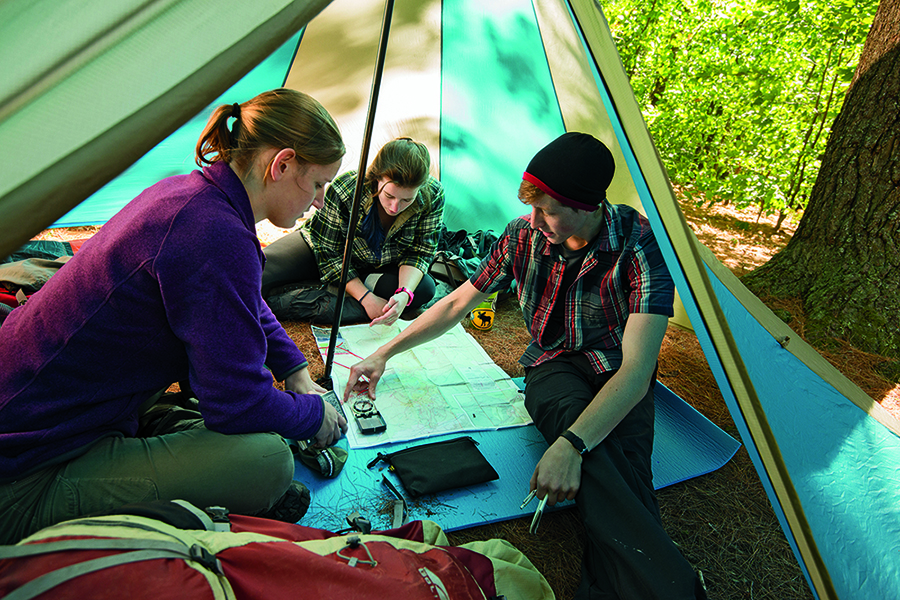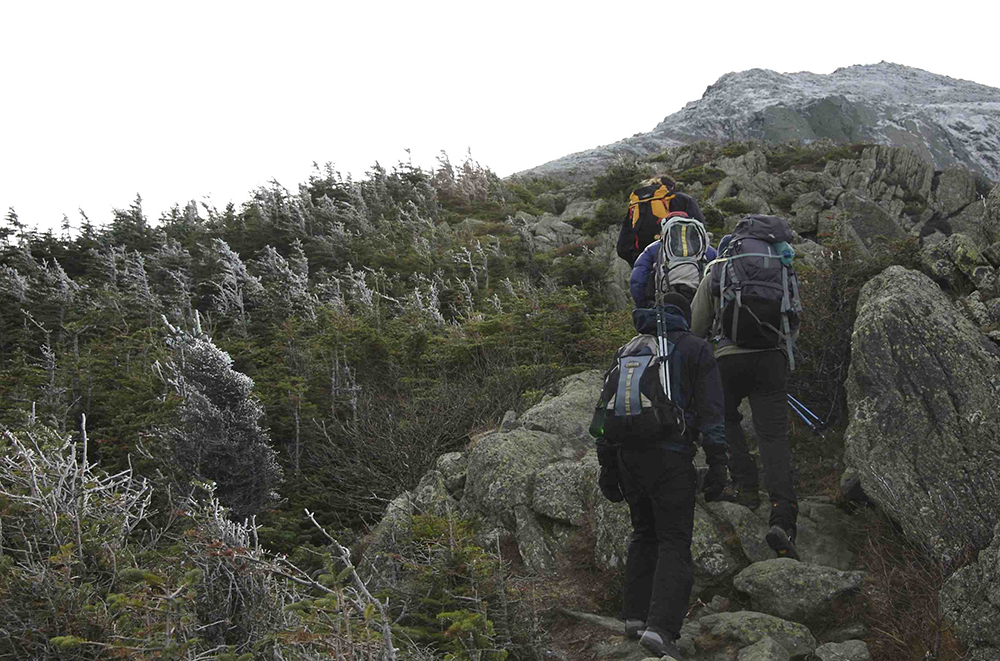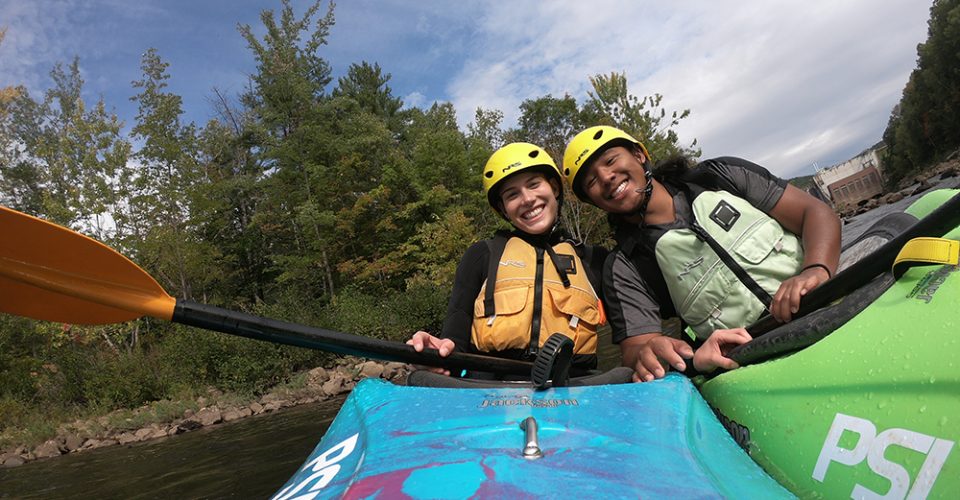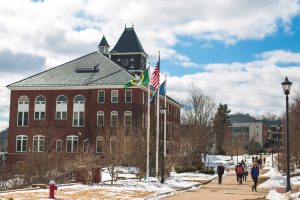Regardless of major or interest, perseverance is a cornerstone of Panther culture. Finishing your ten-page paper even though you’d prefer to curl up on the library floor and nap for days on end, or running that last sprint at practice when you just want to throw in the towel: we always do our best and see things through. Plymouth State’s adventure education students learn to put their personal sense of perseverance to good use, which ensures success in both their back- and front-country endeavors.

Student Outdoor Adventure Recreation (SOAR) trips include day and overnight activities, such as rock climbing, paddling, hiking, camping, surfing, and biking. No prior experience is necessary. Program Coordinator Nicholas Boccia ’19 notes, “A large portion of adventure education is about perseverance and its application and context in our everyday lives.”
PSU’s program is rooted in theory, practice, and intensive field experience, and grounded in principles of experiential learning. The University’s proximity to the White Mountains provides easy access to various climates, terrains, and natural challenges that shape the curriculum.
Professor Christian Bisson, a 15-year PSU veteran, coordinates the undergraduate program. “Adventure education at Plymouth State,” he says, “is defined by three key outcomes: expanding one’s personal limits, also known as reaching the ‘growth zone’; failing with reflection; and awareness of natural consequences.”
Students are grouped into cohorts at the start of their first year, enabling like-minded individuals to serve as both sounding boards for ideas and support to lean on and learn from. The first-year experience is punctuated by Foundations of Adventure Education, a course that sets the tone for future encounters. Bisson tasks students right from the very start with facing personal phobias such as heights, the dark, and solitude.

Between the nerve-wracking ropes course (a staple of excursions and summer camps), and solos (8- to 12-hour excursions during which first-years must master making fires or building shelters), adventure ed students quickly grasp the importance of perseverance. They also come to know the concepts of grit and tolerance of adversity. The fall of the sophomore year, which Bisson distinguishes as an “immersion semester,” raises the stakes with lengthy and more intense solos.
“Each moment, I have pushed past my limits and learned not only about myself but about all others within the natural world as well.”
Erika Halaby ’19
Boccia experienced tolerance of adversity firsthand during a particularly treacherous canoe river crossing during his immersion semester. “About halfway across, we got hit by a passing snow squall and I could no longer see the other side, but I could see some rocks that I knew were about three-quarters of the way. I was exhausted when I finally reached the other side but felt such a sense of accomplishment.”
As activities compel students to live outside for longer periods of time, using only rudimentary tools while contending with weather and wildlife, perseverance becomes both a motivator and an inspiration. In the life of an adventure education student, it is a daily presence in their personal challenges and when leading group expeditions.
Students acquire the skills needed to be successful in all facets in life, regardless of where they find themselves after graduation.
“Because the program is so diverse, it has taken a lot of perseverance in my heart, body, and soul to complete my degree,” says Erika Halaby ’19. “Each moment, I have pushed past my limits and learned not only about myself but about all others within the natural world as well.”
■ Shannon Griffiths ’17








